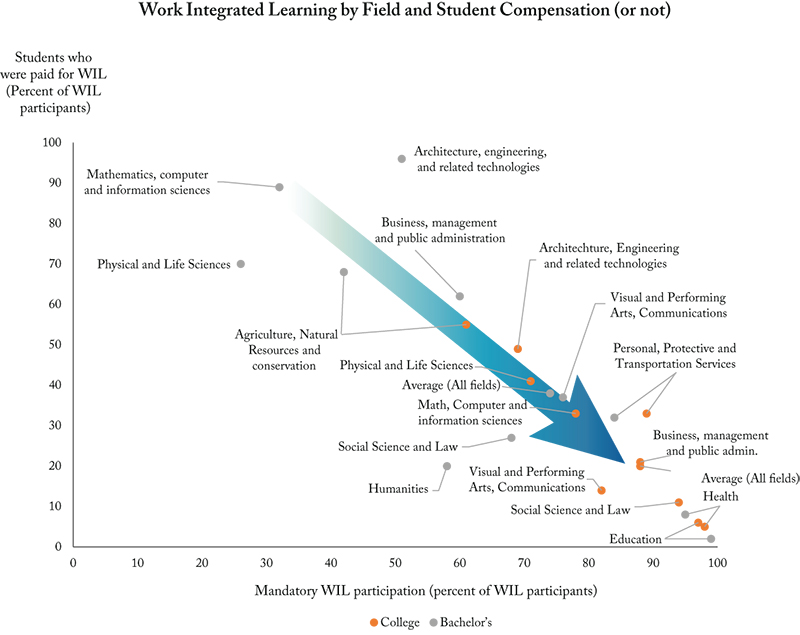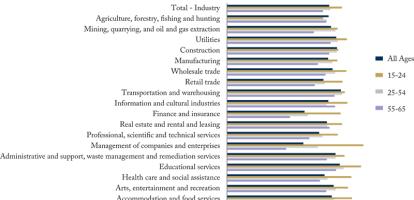Research shows that there are many beneficial labour market outcomes associated with participating in work-integrated learning (WIL) during postsecondary studies. The majority of students who participate in WIL report that it was helpful to them in finding a job after graduation. However, many students also report that they were not paid for their labour during the WIL experiences they participated in (4 out of 5 college graduates and 3 out of 5 university graduates). This is particularly concerning for fields of study where WIL is mandatory for most graduates, such as education and health. Since the vast majority of graduates participate in WIL it is less likely to provide labour market advantages and those fields are also the ones where more than 90 percent of students are not compensated during their WIL experiences.
Unpaid internships can be legal in some provinces but are generally tightly controlled as to the types of work that can be done. Though there are legitimate reasons for WIL experiences to be unpaid such as genuine community service activities, requirements for licensure before receiving compensation, and receiving educational credit, there are also some “volunteer” placements that suspiciously resemble employment. This opens the door to exploitative employment practices by unscrupulous employers interested in free labour.
Although many students benefit from WIL experiences, governments and educational institutions should have safeguards in place to prevent, investigate and intervene in cases where student labour is being undercompensated to ensure that their labour rights are being upheld.
To learn more about the labour market outcomes associated with WIL see From Class to Career: How Work Integrated Learning Benefits Graduates Looking for Jobs





